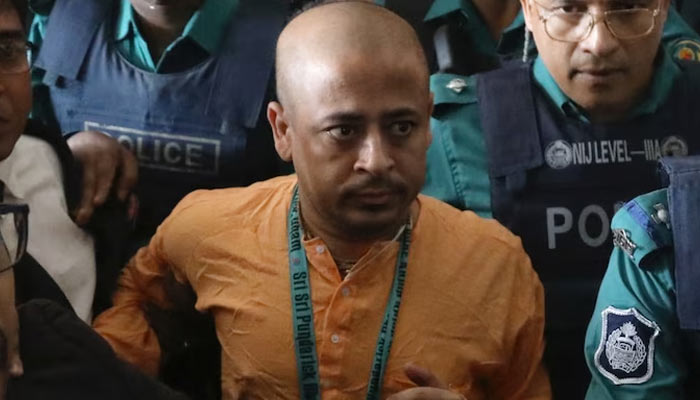Bangladesh’s authorities have ordered freezing for 30 days the bank accounts of 17 people associated with ISKCON, including its former member Chinmoy Krishna Das arrested this week on sedition charges, media reports said Friday.
The move comes after the Bangladesh High Court rejected a petition seeking a ban on International Society for Krishna Consciousness (ISKCON), following the killing of a lawyer in a clash between the Hindu leader’s supporters and security personnel.
The Bangladesh Financial Intelligence Unit (BFIU) sent these directives to different banks and financial institutions on Thursday, suspending all types of transactions related to these accounts for a month, newspaper Prothom Alo said.
The financial intelligence agency under the central Bangladesh Bank asked the banks and financial institutions to send information, including updated transaction statements of accounts related all businesses owned by these 17 individuals, within the next three working days, it said.
On October 30, a sedition case was filed against 19 people, including Das, at Chattogram’s Kotwali Police Station, accusing them of disrespecting Bangladesh’s national flag in Chattogram’s New Market area during a rally of the Hindu community.
Das, a spokesperson for the Bangladesh Sammilita Sanatani Jagran Jote, was arrested from Dhaka’s Hazrat Shahjalal International Airport on Monday for alleged sedition. He was denied bail and sent to jail by a Chattogram court on Tuesday, triggering protests by his supporters.
On Tuesday, New Delhi expressed concern over the leader’s arrest and denial of bail, and asked Bangladesh to ensure the safety of Hindus and other minorities. Ousted Bangladesh prime minister Sheikh Hasina too has sought the priest’s release. She also condemned the killing of the lawyer during the protests over his arrest.
ISKCON Bangladesh refuted allegations linking it to the lawyer’s killing, saying the claims were baseless and part of a malicious campaign.
A spokesman of the attorney general’s office said a two-member High Court bench that declined to ban the ISKCON activities in Bangladesh also said the situation did not warrant the intervention of the (High) court “at this time” as the State is carrying out its job. The Bench hoped that the government would remain cautious about protecting the law and order situation and the lives and properties of the people of Bangladesh.
Hindus — the community constituted about 22 per cent of Bangladesh’s population during the 1971 Liberation War, now make up roughly 8 per cent – have been frequently reporting atrocities against their community members in different parts of Bangladesh.
There are also reports of the rise of extremist groups such as the Jamaat-e-Islami and similar ideological extremist wings.

